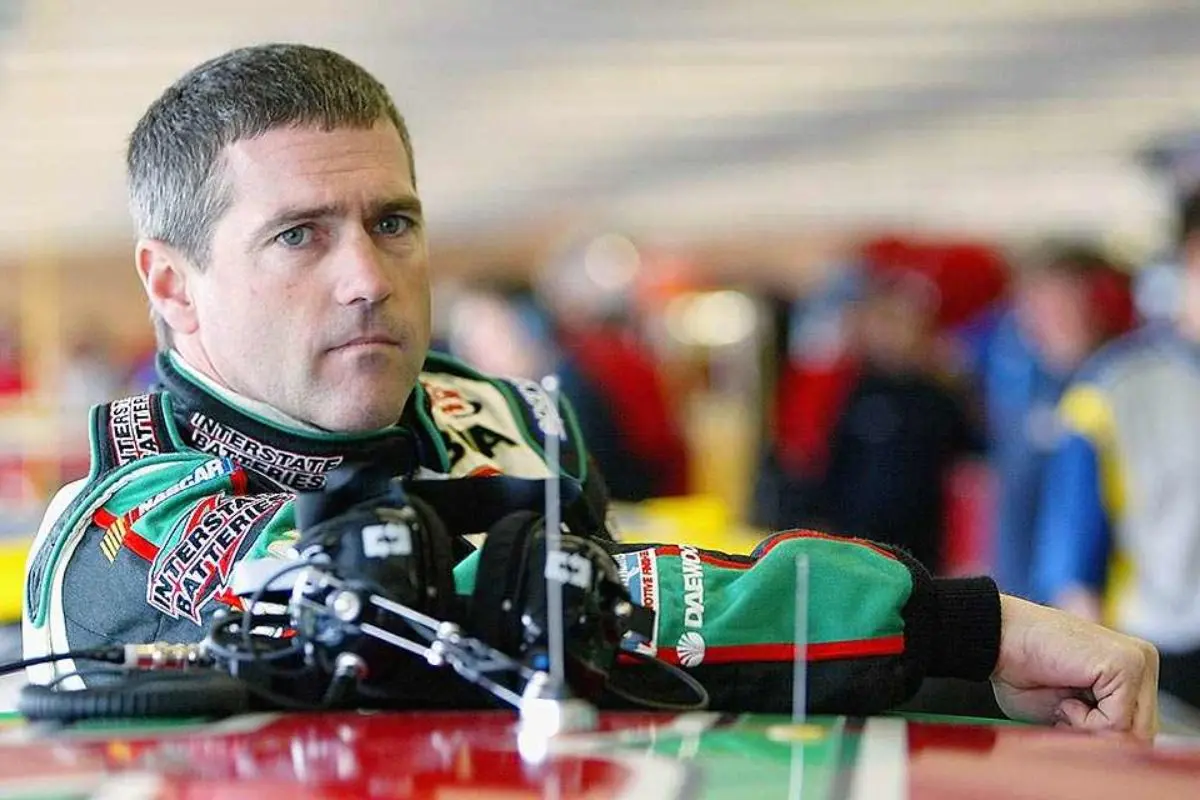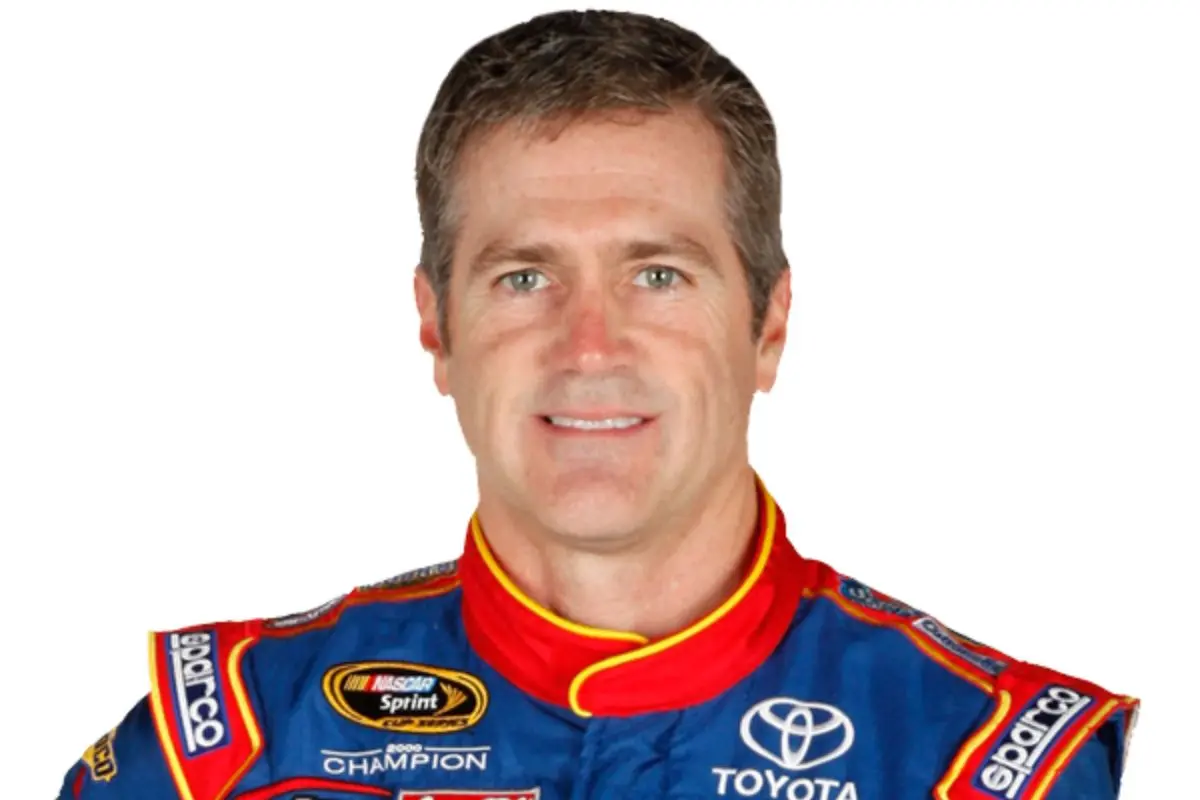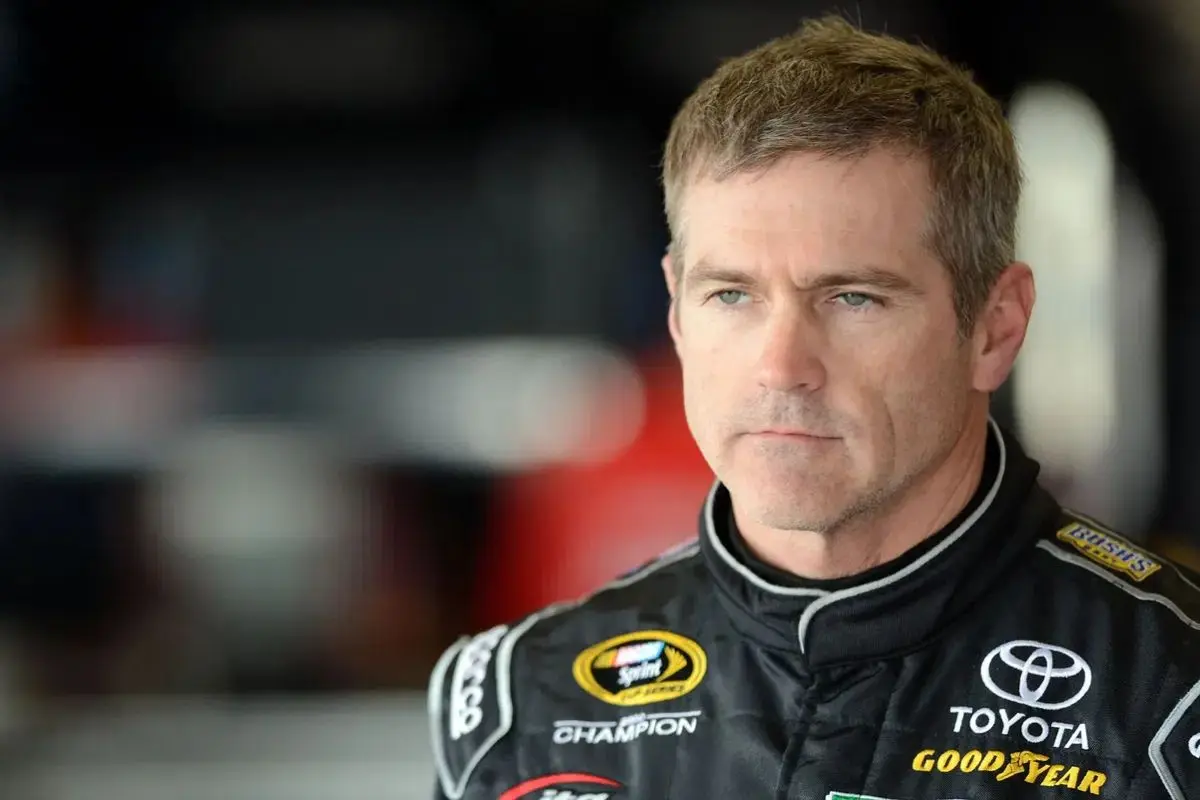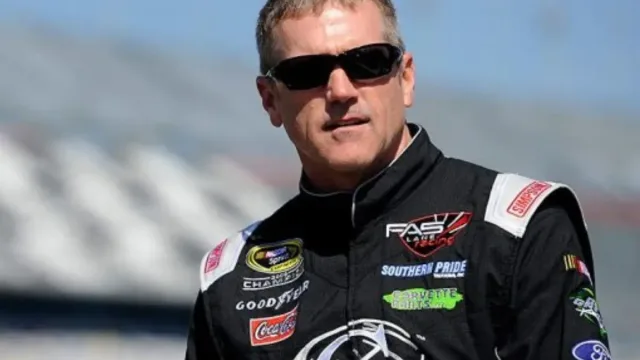Bobby Labonte’s late-career decline has sparked a fierce debate among NASCAR fans. Once a champion, Bobby Labonte’s struggles in the later years of his career have left many wondering what went wrong. After moving to smaller teams and facing performance issues, questions about his future in the sport continue to arise. Could a comeback with a bigger team revive his career, or is his time in NASCAR truly over?
Key Highlights
- Bobby Labonte’s performance significantly declined post-2003, with no wins and only two top-10 finishes afterward.
- His move to smaller, underfunded teams contributed to increased DNFs and diminished competitive capabilities.
- Fan criticism and performance debates highlight concerns about his ability to compete at a high level.
- Discussions about a potential comeback with Earnhardt Ganassi Racing suggest improved resources might aid performance.
- Industry observers remain divided on the viability of a return, considering factors like age and marketability.
Bobby Labonte’s Legacy and Career Achievements
Bobby Labonte’s legacy in NASCAR is one of remarkable consistency and resilience, exemplified by his triumph as the 2000 NASCAR Cup Series Champion. In an era marked by fierce competition from legendary drivers such as Dale Earnhardt Sr. and Jeff Gordon, Labonte’s ability to maintain a high level of performance set him apart. Over his career, he secured over 20 NASCAR Cup Series wins, a tribute to his skill and determination on the track.
Labonte’s 2000 championship season is particularly significant for its consistency. That year, he completed all 34 races with an impressive 24 top-10 finishes. This achievement highlighted his tactical driving approach and adaptability across different tracks and conditions, traits that are hallmarks of a successful NASCAR driver. His skill in maintaining focus and execution over an entire season enabled him to clinch the championship, marking him as one of the sport’s elite.
Adding to his distinguished career, Labonte became the initial driver to win both the NASCAR Xfinity and NASCAR Cup Series championships. This milestone solidified his place in NASCAR history and demonstrated his versatility and competitive edge across different competition levels. His accomplishments have earned him a spot in the NASCAR Hall of Fame, where his contributions to the sport are celebrated.
Labonte’s career achievements reflect a dedication to excellence and a steadfast commitment to the sport. His legacy is a benchmark of success and endurance, inspiring future generations of drivers to pursue greatness within the high-stakes world of NASCAR racing.

Struggles in Bobby Labonte’s Later Career
In the latter part of his career, Labonte faced numerous challenges that overshadowed his earlier successes. After his notable achievements in the early 2000s, Labonte’s performance began to falter post-2003. Despite his reputation as a formidable driver, he struggled to maintain the competitive edge that once made him a championship contender.
Remarkably, Labonte failed to secure any wins after 2003 and achieved only two top-10 finishes in the final standings during this period.
Labonte’s shift to less competitive, underfunded teams marked a turning point in his career. This change necessitated a reliance on his past champion’s provisional to secure race entries, highlighting a pronounced contrast to his previous competitive skill.
His on-track struggles were further compounded by an increase in DNFs (Did Not Finish) and a clear decline in performance. This decline was particularly evident when compared to teammates like Tony Stewart, who continued to find success in the same equipment, emphasizing Labonte’s challenges.
To summarize the key aspects of Labonte’s late-career struggles:
- Lack of Wins: Post-2003, Labonte did not secure a single race victory, a considerable departure from his earlier accomplishments.
- Dependence on Provisional: His need to utilize the past champion’s provisional to enter races highlighted his diminishing competitiveness.
- Increased DNFs: The rise in DNFs and general performance issues marked a clear decline in Labonte’s capabilities on the track.
These struggles culminated in his departure from Joe Gibbs Racing in 2005, prompting questions about his NASCAR future.
Bobby Labonte’s Moves to Petty Enterprises and Smaller Teams
Joining Petty Enterprises in 2006, Labonte sought a fresh start to revitalize his waning career. The shift, however, was marred by Petty Enterprises’ financial difficulties, which severely hindered Labonte’s ability to perform at his peak. Despite his previous successes, the team’s dwindling resources and lack of competitive equipment left Labonte struggling to maintain his standing within the NASCAR hierarchy. By 2009, the financial turmoil peaked, forcing the team to the edge of bankruptcy and leaving Labonte in search of opportunities with smaller, less-funded teams.
In 2008, there was speculation that Labonte might make a career-saving move to Richard Childress Racing, a team with a reputation for competing at the front of the pack. Unfortunately, the deal did not come to fruition, and Labonte’s options became increasingly limited. As a result, he found himself driving for smaller teams, where the lack of funding and support further contributed to his performance decline. These teams, though passionate and committed, could not offer the resources needed to compete against the well-established giants of the sport.

Hypothetical Comeback with Earnhardt Ganassi Racing
The prospect of a hypothetical comeback with Earnhardt Ganassi Racing (EGR) for Bobby Labonte has stirred considerable debate among NASCAR enthusiasts. Labonte, a former champion, faced challenges in his late career, prompting discussions about whether a partnership with EGR, formed from the merger of Dale Earnhardt Inc. and Chip Ganassi Racing in 2009, could have rejuvenated his performance.
Despite the potential charm of joining a prominent team, many fans remain skeptical about the impact this move might have had on Labonte’s career.
Supporters of the hypothetical comeback highlight several potential benefits of such a partnership:
- Infrastructure and Resources: EGR, being a well-funded and experienced team, would have provided Labonte with superior infrastructure compared to smaller teams he had previously joined.
- Technical Expertise: Access to advanced technology and engineering expertise at EGR might have offered Labonte a competitive edge, potentially improving his performance on the track.
- Sponsorship and Support: Joining a high-profile team like EGR could have attracted better sponsorship opportunities, ensuring more stable financial and logistical support.
However, despite these potential advantages, critics argue that Labonte’s performance issues were not solely due to team resources. They suggest that even with EGR, Labonte might have struggled to finish higher than 25th in the standings, facing replacement by more competitive drivers.
This skepticism highlights a broader debate about whether team changes alone could counteract the decline evident in Labonte’s late career. Ultimately, while the hypothetical move to EGR presents interesting possibilities, the impact on Labonte’s legacy remains a matter of conjecture.
Fans’ Criticism of Labonte’s Late-Career Performance
Many fans have not hesitated to express their disappointment with Bobby Labonte’s performance during the latter stages of his NASCAR career. This sentiment is particularly pronounced when reflecting on his 2010 NASCAR Cup Series season, a year marked by his involvement with multiple teams, including TGR Motorsports, Phoenix Racing, and Stavola Labonte Racing.
Labonte’s statistics from that season were remarkably underwhelming; he failed to secure any top-10 finishes, had an average finishing position of 30.56, and experienced 11 DNFs (Did Not Finish) during the season.
“I don’t think this was ever a possibility… But if in some alternate reality, it did happen, JPM would’ve won more races as he would’ve annihilated Bobby and Chip would’ve given JPM the better everything. As far as Bobby goes, I doubt he finishes higher than 25th in the standings and gets canned pretty quickly.” – NASCAR fans’ reaction
The disappointment among fans largely stems from the clear contrast between Labonte’s performances during the height of his career and his later years. Many supporters, recalling the skill he once displayed, have been vocal in their belief that a return to former glory seems improbable. Some have even labeled him as “washed,” questioning whether Labonte could ever regain the competitive edge that once characterized his racing style.
“He was well-washed by then.” – NASCAR fans’ reaction
Despite the criticisms, it is crucial to acknowledge Labonte’s notable legacy within the sport. His contributions and earlier achievements continue to resonate, underscoring his place in NASCAR history.
“Are you implying he’d win races or be remotely as good as he was in his prime?”
“What if a frog had wings? Stop with these questions. You did this with the Ryan Newman wreck a few weeks ago. Get a life.” – NASCAR fans reaction
While fans may express dissatisfaction with his recent performances, Labonte’s career remains a proof of his enduring impact on the sport. His earlier successes have cemented his reputation, ensuring that his influence extends beyond the statistics of his later career.

News in Brief: Bobby Labonte’s Late-Career Decline
Bobby Labonte’s career, marked by notable achievements including a NASCAR championship, has recently faced challenges, particularly in later years. Shifting from major teams to smaller ones, including Petty Enterprises, has fueled debate about his future in the sport. Speculation about a potential comeback with Earnhardt Ganassi Racing adds complexity to the discussion.
Despite his struggles, Labonte’s enduring legacy in NASCAR remains undeniable, though ongoing performance issues have sparked criticism from fans and raised questions about his competitive viability.
ALSO READ: Bobby Labonte JGR Comeback: Inside His Shocking Return!
